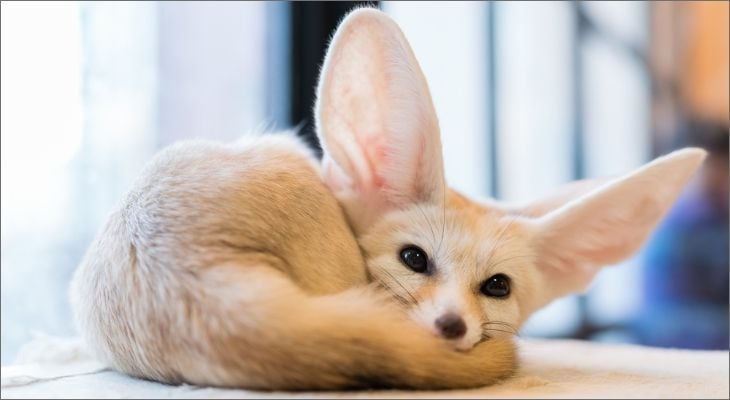There’s a recent game by the designer of Wingspan, The Fox Experiment, that has a suggestion.
I have 5 cats. 2 are terrible, assy, almost unlikable Siamese. But I love them.
The hoops I have to jump through to keep them from howling the roof off would surprise you.
I have 2 lovable rescues who have their own needs. And I adore them.
I have a barn cat that accepts me is as much as I can say about her
I’ve fostered probably 50 cats.
I totally loved them all.
But I can’t imagine living with a big cat. I see no good reason anyone should.
Yes. I watched that. It totally changed the foxes.
I kind of suspect that a million years from now corvids might take the place of humans and mammals for that matter as being at the top of the rung. Resources may be exhausted by then. And they would be the perfect candidate to take over with rats as their pets.and source of protein.
Some qualifiers for domestication.
Food source, companionship, security, many types of working jobs. I would not include entertainment or fad type animals.
That’s rather like Ghandi’s response to “what do you think about Western civilization”:
Ans: “I think it would be a good idea”.
It’s cutesy-clever. It seems to turn the discussion on its head. But it is just rhetorical nonsense.
Who is to be the arbiter of what is civilization, or what is domesticated? How is this decided?
Good thoughts, what are some of the attributes of domestication. I think with dogs it is a failure to reach maturity.
Slavery has been happening for many moons. Didn’t seem to work out.
Well I was thinking more along the lines of domesticating Florida Man. But sorry for making the joke, it’s was just a throwaway, I don’t want to sidetrack from an interesting thread.
I was just thinking about it. I domesticated my kids(well, Son-of-a-wrek is maybe a tad worrisome, yet).
It is interesting none the less. Civilization has changed so radically in the last 100 years we are still in the process of adapting to it. I t6hink epigenetics may be playing more of a role here than we will ever be aware of.
I was going to suggest Fennec Foxes, but it seems like they are already kept as exotic pets by some people, and on further thought, keeping an animal with such sensitive hearing in a typical noisy domestic setting might be cruel.

As of the end of last year, 167.45 million primates were being used as workers in the United States alone. The alternative is sadder.
[quote=“HoneyBadgerDC, post:27, topic:996508”]
Good thoughts, what are some of the attributes of domestication. I think with dogs it is a failure to reach maturity.
[/qu
If we can keep this on a reasonably scientific basis: perhaps.
Some animals seem to live socially and others don’t. This is pretty much fact.
With dogs, perhaps they are evolved to live in groups. I’m not sure that implies failure to reach maturity?
There is a theory that some animals (humans included) are somewhat neonotenous and seem to retain youthful characteristics throughout life.
Most obious example is the axlotl, which is a larval form of a salamander which lives and reproduces without ever metamorphosing into its potential adult form.
I meant fur covered primates.
Cheetahs have from ancient times been used for hunting, in the Middle East. Along with falcons and sight hounds. I don’t know if they were selectively bred – falcons until extremely recently were always wild-caught.
An interesting text on domestication is by Carl Sauer (Seeds Spades Hearths and Herds, 1969) which I read in the 1970’s.
Prehistoric domestication was not much like what we read about in grade school. Rather, many of our current domesticates existed in a kind of symbiotic but still independent state alongside humans for, probably, many thousands of years before humans began to control their mating selection (one of the main definitions of domestication). In Mongolia, where the horse originated, nomadic tribes and horse herds still live in an ancient relationship in which horses enjoy almost complete autonomy, except when someone wants to ride one. Or eat one.
One of the main challenges to domestication is the aggressiveness of male animals. Bulls, rams, stallions, boars, and buck goats can and do kill people. Until castration was invented, this was a barrier.
Out of the hundred thousand species of animals that could have potentially been tamed, only a tiny handful were ever successful. There must be some excellent reasons for that.
Yeah. I don’t think the game and fish commission and Wardens would approve of Cheetahs for hunting these days.
This is why humans have been so hard to domesticate.
This was exactly what I had in mind when I posted. With all the changes in civilization we may have potential for more symbiotic relationships than we had previously that could lead to domestication. Skunks, possums, several species of birds, hedge hogs, European badgers, are a few of the animals that come to mind. I know every region would have animals unique to that region that might be worth looking at.